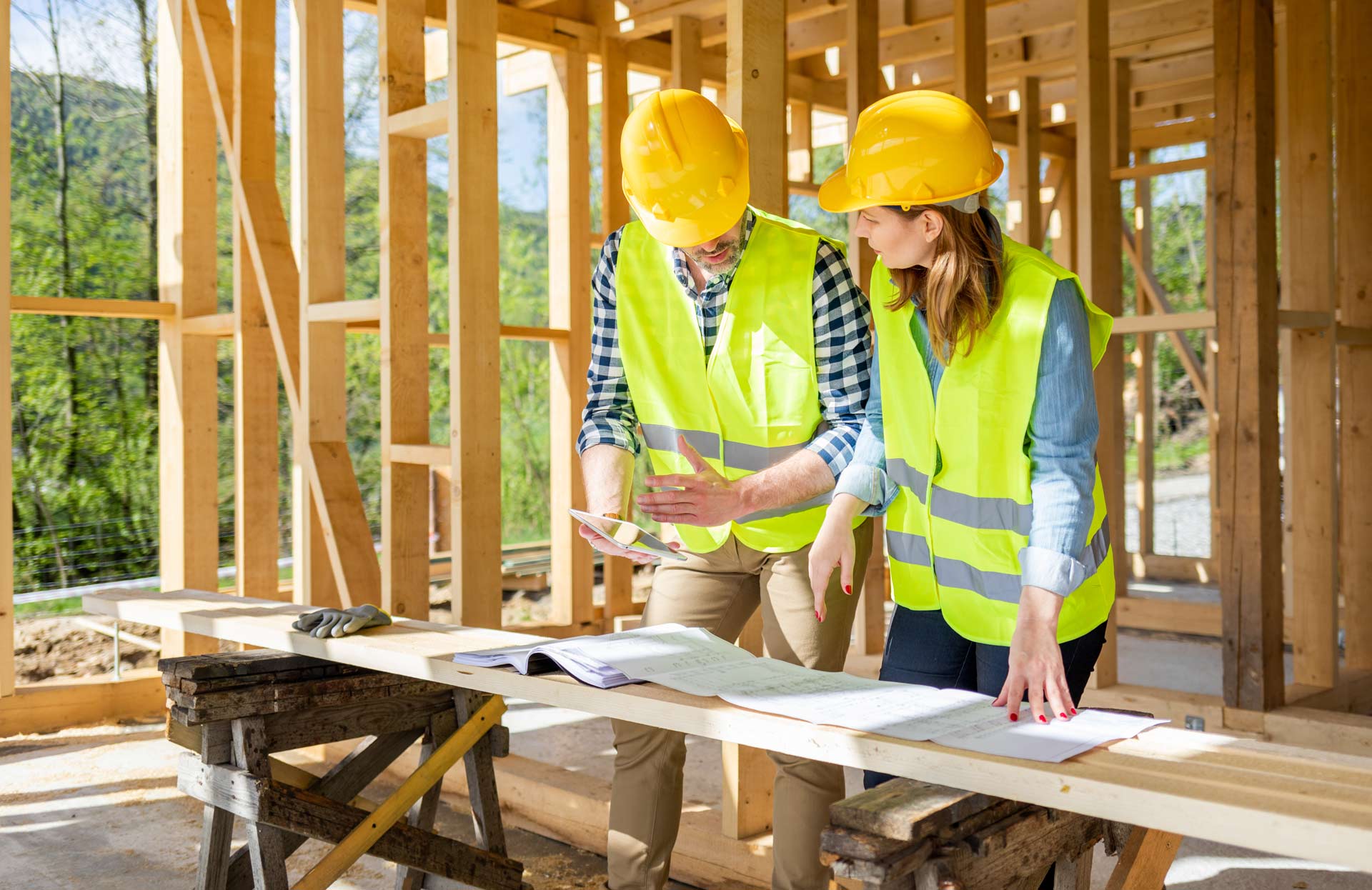
Planning or dreaming about your next big home project? Your mind is likely racing about budget, timelines, and finding the right team to bring it all to life. Choosing a general contractor for a residential construction project can feel daunting. It requires thorough research and planning, which can often leave homeowners overwhelmed. This guide simplifies the process, offering clear steps to help you find the perfect contractor who can turn your construction dreams into reality.
Hiring a General Contractor
The right contractor will be skilled, experienced, trustworthy, and professional. Once you’ve found someone who fits this profile, your project can begin confidently. Follow these steps to ensure you hire the best candidate for your project.
Step 1: Research and Identify Qualified Contractors
Start by asking for recommendations from people you trust—friends, family, or even real estate agents who frequently work with contractors. Online research is a great starting point if personal recommendations aren’t available. Look for contractors with professional, up-to-date websites and positive online reviews.
Some contractors work independently, while others are part of larger construction firms. Both types can be excellent options as long as they meet your project’s requirements.
Remember, the contractor you hire will spend significant time in your home, transforming its look and feel. If you don’t feel comfortable with someone for any reason, don’t hire them. Your peace of mind is essential.
Step 2: Meet with Contractors
Hiring a general contractor is a significant decision. Your goal should be finding someone reliable and skilled to deliver quality work. A job well done the first time saves money on future repairs or adjustments.
During initial meetings, ask contractors questions to gauge their fit for your project:
- How long have you been in business?
- What type of construction work is your specialty?
- Have you worked on similar projects?
- Do you use your own crew or subcontractors?
- What licenses or permits do you hold?
- How do you handle unexpected issues?
- What’s your typical work schedule?
- How do you manage cleanliness and dust control?
- Do you have workers’ compensation and liability insurance?
- Can you provide written contracts and warranties?
- May I contact past clients for references?
Pay attention not only to their answers but also to how they communicate. Do they speak professionally and respectfully? Are they engaged and enthusiastic about your project? Avoid contractors who dodge questions or provide vague responses.
You are free to sign anything once you’re fully satisfied with their answers. After meeting with several contractors, review your notes and choose the one who seems like the best fit.
Step 3: Request Detailed Quotes
Be specific about your project’s vision when asking for a written estimate. Specify materials, finishes, and timelines. Requesting at least three detailed quotes allows you to compare and make an informed decision.
An accurate quote should include:
- A breakdown of the work required
- Project Timeline
- Total cost
Keep in mind that anything not included in the quote may result in extra charges later. The lowest bid isn’t always the best choice—quality and transparency matter most.
Step 4: Discuss Payment Terms
Once you’ve selected a contractor, negotiate payment terms. While pricing may have limited flexibility, setting up a clear payment plan and contingency budget is crucial.
Payment Options:
- Fixed-Price Contracts: Ideal for strict budgets, this option involves agreeing on a total project cost upfront, with payments scheduled accordingly.
- Cost-Plus Contracts: This option offers flexibility, with actual project costs plus a management fee (usually 13–20%) detailed at each stage.
Important Payment Tips:
- Never pay in cash.
- Small projects can be paid by check or credit card, while financing options are better suited for larger undertakings.
- Only make payments once financing is approved, if applicable.
Step 5: Finalize the Contract
A well-detailed contract protects both you and the contractor. Include specifics such as:
- Contractor’s full contact details and licenses
- Start and end dates
- Payment schedule
- Step-by-step project milestones
- Proof of required permits
- Policies for unforeseen changes and termination clauses
Read and understand the contract thoroughly before signing. If you’re comfortable with every detail, you’re ready to proceed.
Ready to Get Started?
Are you eager to begin building your dream home? You now have the tools to find the perfect contractor for your project.
Looking for premium construction services? At Groupe FAA and Habitations Raymond Allard, we specialize in creating warm, inviting spaces where you will make lifelong memories. With a comprehensive team of experts, we offer a seamless, stress-free experience tailored to your needs. Choose a partner who values understanding and transparency, free from high-pressure tactics. Let us help make your construction project a success!
